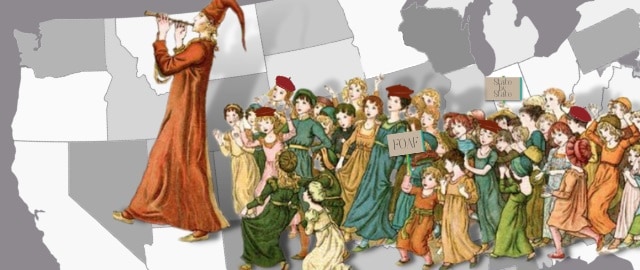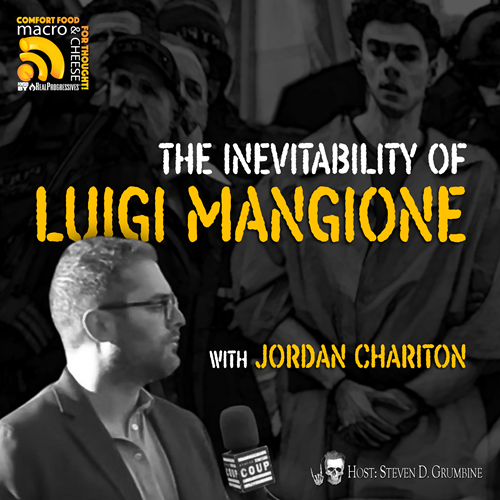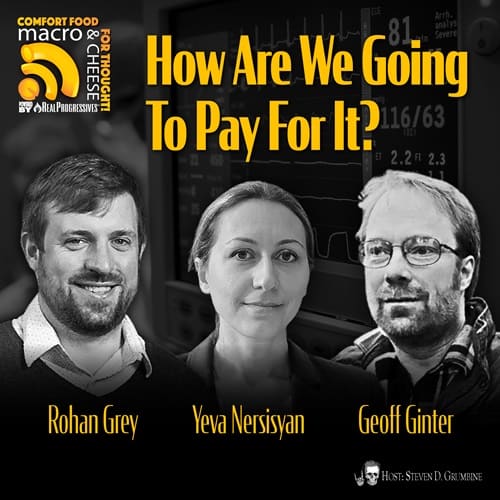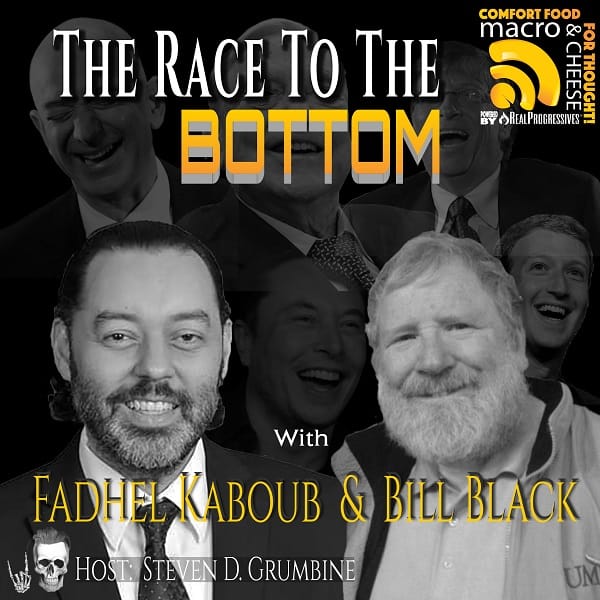Episode 57 – OK, Boomer. Great Again Isn’t Good Enough with L. Randall Wray
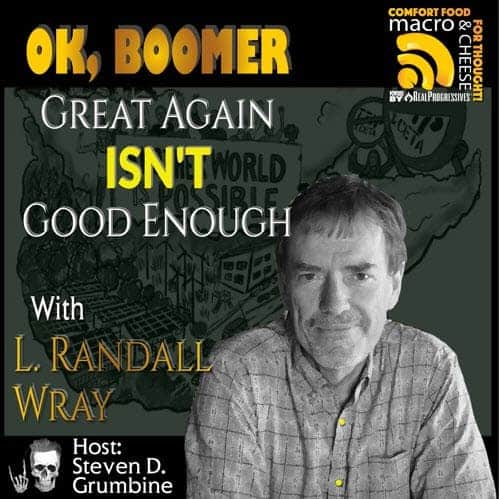
FOLLOW THE SHOW
Why do Bernie Sanders proposals feel so familiar to baby boomers? Let Randall Wray break it down for you.
It’s always a treat to welcome L. Randall Wray, one of our favorite economists and guests, to Macro n Cheese. This episode is an added treat because, in a bit of a departure, Randy talks to Steve about politics and policy, looking through the lens of MMT while putting today’s issues in a historical context. Who better to bring that perspective than someone who lived through it? Maybe he wasn’t around for the Great Depression or World War II, but as a baby boomer, he witnessed first hand much of the massive growth and expansion of the postwar years and talks about what made America great and not-so-great during that period.
Randy states the only reason the policies proposed by Bernie Sanders seem so far outside the mainstream is because the mainstream has become so regressive. The ideas aren’t radical — the Democratic Party is conservative.
Steve asks him why our society is so regressive. Much of the answer lies in the rise of finance capital — the financialization of the economy. Wall Street has its fingers in every aspect of society, yet it doesn’t produce anything, so the net value added to the economy is massively negative. Randy likens them to the rentier class. They take a percentage of corporate profit right off the top. A percentage of one’s paycheck goes to the FIRE sector — finance, insurance, and real estate. (Obamacare is a recent example that furthered the process.) Obviously they’re not going to support democracy.
Randy says that in order to assess a policy proposal we shouldn’t ask how much it will cost. The correct questions are: do we know how to do it and do we have the resources. He and Steve go down the list, from free college and daycare, to Medicare for All, to the greening of the economy and public ownership of utilities — the answer to those questions is “yes.” We have historical examples of some major successes. We also have examples of failures, like JFK’s “war on poverty,” from which to learn and craft more systemic approaches.
They consider the likely deflationary bias of Medicare for All and Randy explains why economists are talking about offsets. This is an episode that will interest everyone who’s interested in real possibilities for shared prosperity.
L. Randall Wray is a Senior Scholar at the Levy Economics Institute of Bard College.
Macro N Cheese – Episode 57
OK, Boomer. Great Again Isn’t Good Enough with L. Randall Wray
February 29, 2020
Randall Wray [intro/music] (00:04):
I think that it was done poorly. We learned a lot about the design. You don’t segregate poor people in their own neighborhood. That was always a bad idea. But instead of just tearing up all the public housing, which is what we’ve done, we need to build new ones. And need to do it right this time. Buying a house has been a path to the middle class in the post war period. If you have a lot of student loan debt, you have to postpone buying a house by many years.
Geoff Ginter [intro/music] (01:26):
Now let’s see if we can avoid the apocalypse altogether. Here’s another episode of Macro N Cheese with your host, Steve Grumbine.
Steve Grumbine (01:34):
All right. And this is Steve with Macro N Cheese. Today I have guest Randall Wray and Randy Wray has been one of the premier early adopters, the forerunner within the Modern Monetary Theory school of thought. Randall Wray has written many, many books from “Why Minsky Matters” to basically the book on Modern Monetary Theory. He has been one of the earliest writers working with Warren Mosler dating back to the nineties and folks I’m very, very happy to have Professor Wray joining me today. Professor Wray, welcome.
Wray (02:14):
Good to be back.
Grumbine (02:16):
So I know that your specialty is not politics, which is what makes this discussion that we’re about to have even more juicy. Going back as far as I can remember, your writing in particular has been very instrumental in shaping my politics though that probably is not exactly what you had in mind. You’ve been fighting for economics, but it is informed my politics.
And, you know, as we watching this major surge within the Progressive movement, the Bernie Sanders movement and watching these bold Progressive policies come into the forefront, where they’re starting to say, you know, how you going to for it and stuff like that. These are questions you’ve been answering now for 20 years plus, and here we are finally on the precipice of something truly spectacular, where these ideas are suddenly becoming more mainstream.
People are starting to adopt them, starting to grab hold of them. As recently as yesterday, Paul Krugman was complaining that well, if this all happens and Bernie Sanders becomes president, I’m probably not going to be needed anymore. You know, to which I would say that’s correct, Paul.
Finally figured it out. What is your take on where Modern Monetary Theory is at today? And what are your feelings as you watch these things occur, you know, a little outside your bubble, for sure. But within this current time, what are your thoughts on that?
Wray (03:51):
Well, yes, we are on the verge, I think, of an opportunity or Progressive policies. I just want to say, you know, part of the reason why they seem so Progressive is because the Democratic Party mainstream has become so regressive — a good deal of the policies that Bernie is pushing, and that are part of the broad agenda of the Green New Deal — so going way beyond tackling climate change, but also inequality and so on.
These would not have been radical when I was younger for a Democratic Party member to be pushing. They have become radical because the Democrats have moved so far to the right that I dunno, even Republicans in the later sixties were to the left of our current mainstream Democrats. And so Bernie has been calling them corporate Democrats. You could just call them Neoliberal Democrats.
So they seem so far outside the mainstream because the mainstream has become so regressive. But yes, I think we do have this big opportunity. We are recovering ideas that used to be Progressive by the Democratic Party which was Progressive at one time.
And we’ve got an answer to the how you’re going to pay for it question that is so popular with the mainstream Democrats, the Republicans, except when they’re talking about a tax cut for the rich and all the media, but in the early postwar period, everyone knew how we paid for the war. There was no question about it at all.
Nobody thought that you paid for the war with taxes because that was plainly wrong. That is not how we paid for it. We paid for it with government spending. So MMT has been reviving these ideas that were lost because the mainstream became so conservative.
Grumbine (06:07):
Wow. So this is a great point here for me because I’ve been alive since 69 and a lot of the stuff I’ve only read in a book, but what would Progressivism look like were we not sitting here in a radically fascist society today? What would you say would make Bernie Sanders plans, for example, even more like a real left wing revival?
Wray (06:33):
Well, if we just go down the list of what many people include in the Green New Deal, student debt relief, okay. The people who are still in college, but also especially the people who graduated with college have huge debt and the notion that we ought to relieve them of debt, so Pete, the mayor, thinks this is a radical idea. We shouldn’t do this at all. Hold it.
My cohorts went to college for free. You know, if we took out loans, they were government issued loans at a 3% interest rate. And if you did public service afterwards, such as teaching elementary school, which was my goal, they forgave half the debt. And we had no tuition in California at the state schools. So what’s crazy is that we’ve indebted students. Relieving them of the debt is not crazy.
It’s good economics. It’s good social policy, free public education. We used to have that and we still have it up to grade 12. We’ve had that for decades and we have to recognize that a high school education is not good enough anymore. For the vast majority of the workforce, they need college.
Why shouldn’t it be free? So public education through at least four years of college ought to be offered. Universal childcare, women have come back into the labor force. At the end of World War II, we actually encouraged them to leave the labor force. I’m not saying that that was a good policy, but they’ve come back into the labor force and to give them an equal opportunity, have good jobs, we’ve got to provide universal childcare.
It ought to be free in a way that’s extending education back to age zero. Public housing. We had public housing in the sixties. I think that it was done poorly. We learned a lot about the design. You don’t segregate poor people in their own neighborhoods. That was always a bad idea, but instead of just tearing up all the public housing, which is what we’ve done, we need to build new ones and we need to do it right this time and on and on — eliminating poverty, euthanasia of the billionaire class.
Well, we didn’t have this kind of inequality in the 1960s. Now we need to take action to eliminate it. Public ownership of utility companies, part of the Green New Deal efforts. Well, we used to have public ownership of much of the supply of utilities to households.
And a lot of that has been sold off to private firms that operate like the monopolist that they are, which has raised the price and reduced the quality and also kill the environment at the same time by choosing environmentally destructive sources of fuel. So anyway, all those things were not radical in the 1960s. And now these seem radical because we’ve moved so far backward.
Grumbine (10:01):
That’s absolutely terrifying. How in the world did that happen? I mean, there was this just the Mont Pelerin Society? Was this the Powell Memo? Was this Friedman and, you know, the Chicago School? How do we go from being aware to literally falling asleep? What a travesty. What got us here?
Wray (10:25):
Well, I think those things you mentioned did happen. There was a huge effort at funding right wing think tanks and so on. So that is part of it. Part of it is the evolution of our form of capitalism away from what many people called Social Democracy in Europe, for example, or Managerial Welfare State Capitalism, as what my professor Hyman Minsky called it, where the government played a big role, unions also played a big role in the economy and they were countervailing powers to the big corporations.
So they sort of kept the big corporations in line. But over time, the government sort of acting as a countervailing power shifted toward protecting the power of the corporations against the labor unions. And the unions of course were decimated over the past almost 50 years. So there is that. And there also is the rise or actually return of what we used to call finance capitalism.
Today it’s more common to use the term financialization of our economy, where Wall Street got its fingers into almost every aspect of our economy and society. And of course, Wall Street doesn’t produce anything. Their net value added to the economy is massively negative. As Bill Black always says they are more like a rentier class. They charge rent. They’re rent seekers.
They don’t produce anything useful. And so they take their 40% of corporate profits right off the top, take it away from the corporations. And they also take our paychecks with insurance, the whole FIRE sector — finance, insurance, real estate sector. They take rents out of all of our paychecks.
Obamacare was just continuing in that direction to take more of our paychecks away from us and give it to Wall Street. So the financialization of the economy also plays football. It concentrates money and power in the hands of the very, very few. So obviously they are not going to support Democracy. So they’re acting against the interests of the vast majority of the population.
Grumbine (13:12):
It seems counterintuitive as I hear you go through that, that people would actually support any of this. I mean the sales pitch to basically give up everything. And that’s largely what happened here. It’s like some sell that, you know, we’re all embarrassed millionaires waiting for our millions to come through the door and that my goodness, if we stop them, then we’ll never become millionaires ourselves.
I mean, I can’t imagine any other reason why this seduction into neoliberalism occurred. The media back then, I guess in some ways was more concentrated because you really only had a couple channels to listen to on television. Everybody waited for the morning paper and the evening paper and whatever was printed in the paper was the news. Now there’s a million sources of news.
When that diversification, even though there’s still only five, maybe six main outlets, it really has somehow or another — they’ve been able to maintain this stranglehold on the truth. We seem to be breaking through that and we’re having to use obvious alternative means. You guys have been largely shut out of the academic journals.
You’ve been shut out of public speaking arrangements where other people are frequently invited that clearly don’t understand, or they do understand, and they are playing to a different master. How do we take and put Bernie Sanders platform into a perspective that allows us to not stop there?
I mean, it seems like we’re all just so happy to see somebody fighting back against neoliberalism that it’s almost like, Oh goodness, that’s just such a big hill to climb, but yet, from what you’re telling me and what I’m hearing, there’s so much more that has to be done even beyond what’s being said here.
Wray (15:03):
Yes, we saw the dissatisfaction the last time around 2016, when Trump got a lot of the, let’s say dissatisfaction vote. Bernie of course was also getting some. The mainstream of the Democratic Party of course would do everything they possibly could to prevent Bernie from winning.
And I think that played a big role in promoting Hillary over him. And we’re seeing it again, even stronger than in 2016 with it looks like Bernie is riding a major surge. A lot of the disaffected people were fooled by Trump last time.
I don’t think as many will be fooled this time around because he’s going around the country talking about how they kind of, they’ve never done this well before and so on. And for most people that is just obviously false. The economy’s doing extremely well for the top 1% and on down probably the top 10%, but it’s not doing well for the bottom half.
And what we’ve seen, especially in the Nevada election, is that Bernie did very, very well with the working class of all races, all genders. Bernie did very well. And I think that that reflects the reality of the economic situation for most Americans.
Grumbine (16:53):
That’s very, very powerful insight. What just occurred in Las Vegas. I mean, Bernie, I think he got some almost 52% of the vote. He outclassed the entire field. All of them put together. If you look at the mainstream media, they keep putting these narratives up there, these graphics, infographics with, I’ll see Bernie still losing to the establishment and they show eight people running against . . . to stack all the votes up.
It’s like, in what universe does that actually work? I mean, it’s not race at all. But he does. He clearly has captured the heart and mind of the nation. And I think, you know, one of the biggest challenges obviously is you’ve got the old guard in Nancy Pelosi and others who are still advancing the very concept of PayGo, the ultimate scarcity narrative that keeps us trapped in a zero sum game environment.
And then you look out at the Republicans. They’re even more recalcitrant, more opposed. I think part, you know, for the rank and file, you see a lot of individuals who just genuinely are looking for fairness and they’ve stopped trusting government to serve them. And there’s very valid reasons for not trusting our government of late and probably for a much longer than of late.
If you were talking to a regular voter and they were asking you questions about how do I know if this is a good policy? How do I know if this is a bad policy? Help me assess this policy. From an MMT perspective, how would you approach analyzing and assessing whether a policy was good for the people or bad for the people?
Wray (18:33):
Yeah. So I would start by, let’s say we take some example, greening of the economy, or it could be free public education through four years of college and forget about the hysterical estimates of the dollar cost. Just forget about that for a second, and think about it this way. Do you think that we know how to provide public education to anyone who wants to go to college?
Do we know how to do it? And I think the answer to that is, yes, we know how. We are educating tens of millions of people every year. We do a pretty good job of doing it. So then the question after that is, do we have the resources to do it? Well, the reality is around the country, most colleges are operating well below capacity. When faculty retire, they’re not being replaced.
I go to the, our big annual meetings called the ASSA and 20,000 economists attend that. And about half of those are new graduates or people who have been out for a while and don’t have a job yet. And they’re, they’re looking for a job. We’ve got thousands of graduating PhDs all over the country who would like to have a job teaching economics to students.
The problem is there’s not enough students. So we’ve got the resources to do it. If you think about the Green New Deal, the question is not some ridiculous estimate of trillions of dollars of costs of greening the economy. The question is, do we know how to green the economy and do we have the resources to do it? The scientists, I’m not one of them, but a number of scientists say that we do.
We know how to do it. And we’ve got the resources to do it. Some that require shifting resources out of a destructive use and putting them into constructive use. So stop the fracking and start building solar panels and so on. So we’ve got the know-how and the resources exist. So the financing isn’t the problem. The resources aren’t the problem.
Now people will say, well then how are you going to pay for it? We’ll pay for it the same way that we paid for World War II, which in terms of a challenge was much bigger than the Green New Deal. We’ve got a estimate up at the Levy Institute. The net resource challenge is about 5% of GDP. The World War II challenge was 50% of GDP.
So this is one-tenth the size of World War II. Could we afford World War II? Obviously, yes, we afforded it. We did it. We didn’t say, Oh, it’s just too expensive. Let’s just not bother to fight to preserve Democracy. And the United States, let’s just let the Nazis takeover. We didn’t do that. We rose to the challenge. We paid for it. And we won. The Green New Deal, maybe it’s 10% the size of the challenge. Can we do it? Of course we can.
Grumbine (22:21):
So let me ask you this question obviously with Medicare For All, you know, I spoke with Warren sometime ago and Warren had made mention that what seems counterintuitive to the average person that Medicare For All would have a deflationary bias and that it would possibly require a tax cut to be able to make it flow, to make it work. Can you elaborate on that? Is that a position you stand with? And if so, what does that mean?
Wray (22:53):
Yeah. So again, if we forget about dollar costs and we look at what shifting from our current pretty crazy health care system, which unlike any other country in the world relies heavily on a for profit, private insurance sector.
If we move from that to a system similar to the way we run Medicare in which there’s a single payer, which is the national government, which is very similar to the way other rich developed countries do it, not all of them, but many of them, we are certainly going to reduce total spending by a significant amount.
We took a very, very conservative estimate of the savings. And we put it at about 3.7% of GDP. Let’s call it 4% of GDP reduction in spending. And if that’s all we did, if we reduced spending by 4% on our healthcare system and did nothing else, then that could be deflationary. Now, if we’re implementing it at the same time that we do all the other parts of the Green New Deal that I mentioned, those could help offset the reduction of spending so that we’re not going to get that deflationary impact.
But I agree with Warren that if we only did the Medicare For All, the reduction of total spending in the United States, the way it would hit the economy would be like a very, very deep recession. We would have lots of workers laid off. We would have lots of reduction of spending by those workers and by their firms.
And that would depress demand. So we probably would need a tax cut, but if we phase it in with the Green New Deal, then it helps offset the increased use of resources for other things like the childcare provisioning, the increase of spending on public colleges and the greening projects. Those would offset that reduction.
Intermission (25:31):
You are listening to Macro N Cheese, a podcast, brought to you by Real Progressives, a nonprofit organization dedicated to teaching the masses about MMT or Modern Monetary Theory. Please help our efforts and become a monthly donor at PayPal or Patreon and follow our pages on Facebook and YouTube and follow us on Periscope, Twitter, and Instagram.
Grumbine (26:21):
So, you know, when I look at the fullness of this, it’s nice to see it coming in a package because each of these things could take years to try and fight through Congress. And they probably will, unfortunately. With that said, I really do believe that aside from some of the backdoor shenanigans that the wealthy trying to maintain their power base, I think a lot of people have the fear that the nation is still broke, that it can’t afford these things.
So, you know, Stephanie Kelton has shifted some of her language away from the funding and more so towards the term offsets. And you just mentioned offsets as well. Can you explain the framing of the use of the word offset so that people understand the difference between quote, unquote “taxes” actually paying or financing these programs and the term offset or the use in the economy? So people understand that relationship.
Wray (27:20):
Yeah. Well, what matters is the demand on resources. So if we reduce the demand for resources in the healthcare system, we can offset that with an increased demand for resources for the greening of the economy. That’s the idea. Taxes don’t really pay for spending. I know that that’s the way people think about them, or we could go through the US history and I could show you that this was well understood even back in colonial America.
The purpose of the taxes is to release resources. So if you tax the private sector, households and firms, they can’t spend as much, which means that resources will be released. They won’t be devoted to satisfying the desires of households and firms. Those resources then become available. And we can use those in the public interest for things like provisioning and paying for healthcare and provisioning and paying for the Green New Deal.
It’s not that the government needs the tax revenue to spend, it needs resources to be freed up so that it, that the government can employ them in pursuit of the public purpose, without competing with private sector demands, which might cause the prices of those resources to rise and give us inflation. So I won’t go all the way back to colonial America, but let me just talk about World War II.
We knew back in the early forties that World War II was going to be a huge demand on the US resources, labor, plant, and equipment and so on. We knew we were going to go way beyond full employment, because if you start pulling workers out of the labor force to put them in the military, and if you start producing tanks in the factories that used to produce cars, you are generating a demand for those resources.
And also you’re increasing the income of all the workers that are employed to replace those in the military. So you’re going to greatly increase the demand for consumer goods. And since we would already be at full employment, there was no way to increase the production of consumer goods. In fact, you’d have to reduce the production of consumer goods to make way for production for the war effort.
And so what you have to do is figure out how are you going to reduce the demand for consumer goods? So one way was taxes. So you increase taxes in order to reduce consumption spending. But we knew that taxes alone would not be enough and taxes are a permanent reduction of people’s income. They don’t get that income back.
So following a proposal of John Maynard Keynes, who is the father of Keynesian Economics, you can’t rely only on that. You need a combination of other policies that will help reduce demand. One is patriotic saving. So that’s why we had the war bonds. This was not because the government needed to borrow its own money back from the population.
But if you could convince people it was in their patriotic duty to buy bonds that reduces their consumption because the money they spend on bonds won’t be spent on consumption. In addition, we did have rationing. That’s another way to reduce demand. We had some wage and price controls, and then finally postponed consumption, which is a bargain that you strike with workers.
You say, look, if you will, forego wage increases during the war, after the war, we’re gonna give you compensation. And that would come in the form of retirement and health benefits that were supplied by their firms and we could do boosting social security payments. So all of these methods were used in World War II. And we might think about using the same sorts of methods when we implement the Green New Deal if the demand on resources is too high.
Grumbine (32:16):
So it appears when you look across the spectrum here that the boomer crowd, the crowd that grew up during the depression, folks that long since heard of McCartheism, and lived through all the anti-socialist propaganda that has been spread throughout US history, they are the biggest drawback right now to change and for various reasons.
And I’m sure some of them are heartfelt and some of them are just propagandized into their heads, et cetera. They’re looking at social security and they’re holding on for dear life. They paid into it in their minds, et cetera. And so we’ve got a situation where all of these things are playing against them.
What would your message be to an older community that has these beliefs that have been pounded into their skull forever? What would be your message to them in terms of being able to help them better understand not only the finance and the battles that they have with age old propaganda, but also just helping them understand that this is in their best interest, or they’re not losing here. They’re winning. How would you present this to that community?
Wray (33:31):
Okay, well, first I’m one of the boomers. We didn’t live through the great depression. We were born, we were born after World War II. And so well, one thing is that we need to help them to understand what we did in World War II, because we were born after World War II. You know, we don’t have a memory of that. We grew up in a booming economy, so we’re baby boomers and we enjoyed a booming economy.
And the reason we enjoyed the booming economy was because we had successfully fought World War II. And we had developed our economy. We had gotten out of the great depression. We had increased our capacity to produce tremendously during the war.
And then after the war, we needed to keep things going because we transitioned this massive capacity that had been built up to prosecute the war, to produce consumer goods. And in that environment, when, you know, we’re sort of celebrating the victory and also we’re enjoying rising living standards and rising wages.
And we started having lots of kids, 3.7 kids per household. There’d been a baby bust during the depression. So now we had a baby boom, and then, you know, all those babies needed hospitals. And then they needed schools and they needed roads and they needed bigger houses.
And we built the suburbs. This massive amount of spending on the babies is what led to unprecedented growth in the United States and also around the world as a whole. That period was because of all the government spending. That is why the economy did so well. And what we’ve been going through for the past generation has been very slow growth that has been depressing expectations and depressing the prospects for these new generations for decent jobs and rising living standards.
The first generations that will have a lower living standard than their parents. This has never happened in US history before. So, you know, the age of depressed expectations and it’s killing our society. It’s why we’ve got the rise and return of racism and anti-immigrants. And all the Trump phenomenon is at least in part due to this what Krugman and Larry Summers call secular stagnation.
We’ve got to reverse course, and the government has a big role to play. All these things that I talked about at the very beginning, all those elements of a Green New Deal, these cannot be done without major participation by the federal government, just as the boom after World War II couldn’t have taken place without a major role for the federal government and also state and local governments to play. This wasn’t a boom led by the private sector. It was a boom led by the government sector.
Grumbine (37:15):
That’s amazing. And I gotta tell ya. I’ve been laughing inside the whole time. The term boomer is just sort of like the past and I’m just like, wow, okay. Yeah. Egg on the face there. So with that in mind, the obvious issue here is, is that there is a generational war going on here. I mean, the idea of hard work, the Calvinism, the idea of, well, I paid my debts as we’re trying to talk about getting rid of student debt.
There’s a lot of moralizations going on that are really not economic messages. They’re more “should of” messages, you should this, you should that and it’s a framing issue, in my opinion. How would you explain the student debt crisis to someone of a prior generation that maybe has that tough love/slash bootstrap mentality?
Wray (38:17):
Yeah. Again, the baby boomers didn’t have to pay for their education individually. The public schools were virtually free. And if you looked at the tuition of private schools, my undergrad degree actually was at a private school. I went there on scholarship, but I know what the price was. The full tuition my senior year was $4,000. And now universities are $60,000 – private universities.
There’s a lot of reasons for the big increase in costs. It’s really not faculty salaries, amenities have gotten better, but it’s administrations and high pay of the administrations and so on. So college has gotten very much more expensive. And also remember that we had the veterans from the military, the GI Bill, Uncle Sam paid for their education. And that was a huge portion of college students in the sixties.
So returning from the Korean War, World War II by the sixties, I assume most were done with college. And then the Vietnam War with lots of people coming back on GI Bill. The size of the military is very much smaller now.
So we still do have that. I don’t know if it’s as generous as it used to be. I’m not up on that, but that was a huge proportion of student body in the sixties and early seventies, I suppose, the GI Bill. Part of the reason for the student debt is the rising costs and the transition to student loans, much heavier reliance on student loans.
And we’ve sort of gone back and forth over the years between government provided student loans and private provided student loans. So students today usually have a combination of the two and the private student loans have really hard terms for the students, higher interest rates and fees and interest on interest.
If you miss payments or in some other way, get into trouble and questionable practice by private lenders that induce students to consolidate government-provided student loans with better terms into private-provided student loans with much worse terms, those students actually end up worse off when they consolidate.
So what I’m saying is the boomers got treated much better than today’s students do in terms of the amount of debt they’ve got to take on to get through college. So that’s one thing to try to impress on them. And once you’re heavily indebted in student loans, lots of the other things that came relatively easy for the people of my generation, become very difficult for today’s students. Buying a house has been a path to the middle class in the postwar period.
If you have a lot of student loan debt, you have to postpone buying a house by many years. I don’t know what the average is. I’ve seen it, but I’ve forgotten the number of years that you’ve got to postpone buying a house that sets you way back. So typically you would expect that you’ve got your house paid for by the time you retire.
And along the way you’ve used your house to borrow when necessary, maybe to send your kids through college or to pay some medical bills, you could use your house as collateral for borrowing. If you can’t buy a house because of student loan debt, you don’t have that cushion. And if you’ve got your own kids and you’ve got to put them through school, you may not have a house that you can borrow against to put them through school.
And so they’re going to get a lot of student loan debt themselves. So we had it much better. And, you know, we did all of this in an economy that was growing relatively rapidly and had wage increases relatively rapidly. The last couple of generations haven’t graduated from college into that kind of environment.
Grumbine (43:31):
Would this be a case of quote, unquote, “leveraging the rights argument” back and say, Hey man, let’s make America great again. You know, I mean, this to me, there’s an opportunity here. If you will, to use their own marketing, to use their own logic, to really focus this on truly making America great again for the right reasons. And maybe even doing it a little bit better. It just seems like a real opportunity to take that marketing, whether you like the guy or not, it was clearly effective.
It seems like an opportunity to maybe drape, you know, a little bit of the nostalgia, if you will, of the quote, unquote “greatest generation” and so forth, and be able to wrap it into a new 2020 kind of marketing pitch that allows people to feel like, Hey, okay, now we’re recapturing some of what that American dream is all about.
I don’t know. It just seems like a possible way to marry disparate communities in their own space with their own sensibilities and the things that matter to them. What do you think? Do you think that’s dangerous territory or . . .
Wray (44:41):
No, not at all. You know, I wouldn’t want to use the “great again” term. Not because Trump has grabbed that, but because we shouldn’t settle for that. We can make it greater. We can do it right this time. I was talking about how things were better for the boomers, but I don’t want to gloss over everything. There was a lot of bad, too. It wasn’t inclusive. It wasn’t inclusive enough.
So this time we have to do it better. It’s got to be inclusive. Everyone has to be included. All races, all genders have to be included. Last time around President Kennedy had a war on poverty. It absolutely utterly failed. It did not reduce poverty in the US at all. We have to have a real war on poverty. We have to eliminate poverty.
And you mentioned in passing that, you know, you’re not always for government. In the sixties, we had the Vietnam War. Well, we always had a war. There’s never a period without a war. So we have to make America greater. We’ve got to end the, all of these forever wars and never engage in another one. So we’ve got to end this forever war. We are always in one. We’ve got to stop that.
So ending poverty, ending wars. As I said, we had a public housing experiment. In many ways, it failed. We have to do a better job this time. We had reasonably low unemployment for white males, but we still had recession or depression level unemployment for African Americans. Women had a tough time in the workforce. So if what they mean by Make America Great Again returned to that, that’s not what we want. It’s got to be inclusive.
And of course, then there’s the environment. The sixties were sort of the start of this just massive acceleration of destruction of the environment. So we can’t go back to that. We’ve got to green all of our activities, and that means sacrifices for a lot of people. And that’s why we can’t just do the greening alone. Like some people say, well, let’s do the greening stuff first because you know, if we don’t, that’s the end of human life, then probably most animal life on planet earth, which is true.
We absolutely have to start it, but there will be sacrifices. And we can’t ask people to make those that are already suffering with low wages, high unemployment with racial disparities and so on. We can’t ask for more suffering of them.
So we’ve got to bring them up while we green the economy and make the sacrifices that are needed for that. That’s why the whole thing has to be a package deal. So, yes. I don’t know if I should say this because it’s going to make me unpopular. Yes. You’re going to have to give up your hamburgers. We have to ban beef production. Now, are you willing to do that?
If we can provide you or your children with free public education with childcare, with public housing, if you need it with jobs for all, and we’re going to end the forever wars, we’re not going to draft you anymore and send you off for foreign interventions. Can you give up your beef if we will do all that for you? I think people will be more willing to do it.
Grumbine (48:52):
That’s very, very, very, very powerful. Let me finish off with this one question. And I think this is kind of another major hurdle we have. Obviously the job guarantee serves a lot of purposes primarily to get rid of the buffer stock of unemployed people and turn them into a buffer stock of employed people.
But it also has this just transition aspect to it. And with the move away from fossil fuels and the Green New Deal and eliminating quote, unquote “bad jobs,” jobs that are hurting us. A lot of people have their entire lives staked on being a coal miner. A lot of people have their entire lives being a beef farmer. A lot of people have these roles that maybe were once really wonderful.
Their whole lives are staked around it. Now all of a sudden, you know, we’re going to take away those things in their minds. Talk to me momentarily about a just transition, and how to maybe message this to people who are extremely proud of their family lineage and grandpa and grandma always did this a hundred years of beef farming, whatever it is. How do we make that case?
Wray (50:05):
Yeah, well I think probably the biggest issue is the loss of communities. Since I taught in the middle of the country, I’ve seen those times, although I don’t know as much about coal mining towns, but you start losing population, you lose your school, you lose your post office and you know, that’s what they’re fearful of. And we’ve got to make it clear.
No, you’re going to get good jobs where you are. We’re going to rebuild your communities. You don’t have to move anywhere. That’s why the job guarantee has to create jobs wherever people are, wherever they want to live, the jobs have to be there. They’ve got to pay enough so that the communities can be rebuilt. So that’s what we have to do for them.
I understand that if you want the farming life, it goes beyond the community. You want that kind of a lifestyle, but we can go to sustainable farming. And so we will need to help them transition to that. It has to go beyond the job guarantee. We need more active policies, additional active policies to ensure that people can continue doing what they want to do.
I mean, not destructive mining, not destructive ranching, but environmentally sustainable activities in their communities. I think that’s the first step. You have to convince them that they’re going to be taken care of that way.
Grumbine (52:05):
Very good. I really appreciate it. Randy, this has been amazing for me. I always love talking to you. I know this is probably not the interview you expected. It always ends up being what it is. And I really think that this was powerful. I’m walking away from this with so much to think about. I really appreciate the work you’ve done and continue to do. Thank you so much.
Wray (52:26):
Ok, thank you.
Grumbine (52:26):
Got it. Bye, bye. Folks, that was Randy Wray. Steve Grumbine with Macro N Cheese. Have a great day, everybody. We’re out.
Ending Credits (52:26):
Macro N Cheese is produced by Andy Kennedy. Descriptive writing by Virginia Cotts and promotional artwork by Mindy Donham. Macro N Cheese is publicly funded by our Real Progressive Patreon account. If you would like to donate to Macro N Cheese, please visit https://www.patreon.com/realprogressives
Related Podcast Episodes
Related Articles

Obamacare and the Science of Prolonged Decay
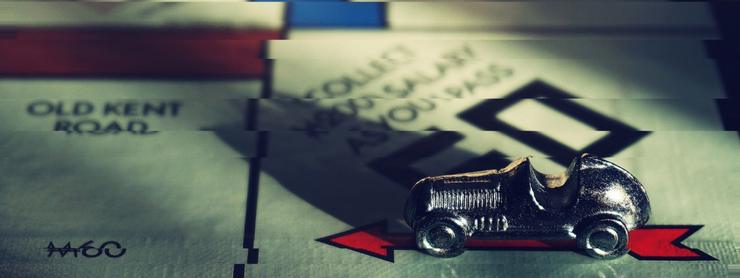
Your Money or Your Life
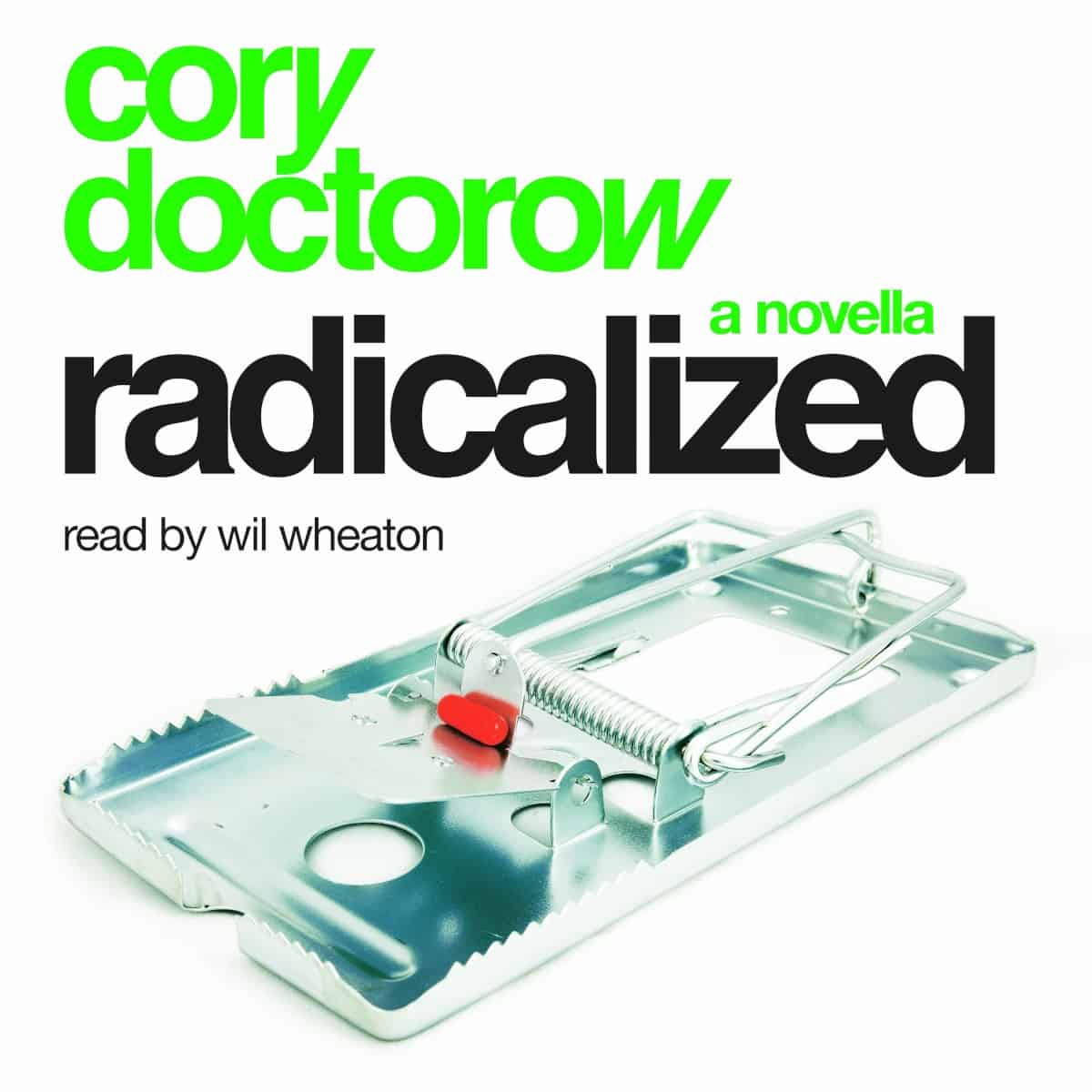
US health insurers get more and more federal funding, deliver less and less care
